There are a lot of misnomers about financially sustainable travel. I guess it stands to reason: I coined the term, somewhat accidentally at that. Since those early days, it has been used in a variety of contexts that aren’t in the spirit of what (I intended) financially sustainable travel to be. People confuse financially sustainable travel with a long term travel budget. While the two are intrinsically connected, they are not the same.
Is it related to environmental sustainability? Nope.
Is it about budget travel? Absolutely not! (Just look at some of my Financial Case Studies to see people who are traveling full-time with six-figure incomes, as well as others traveling on a budget).
While the definition of financially sustainable travel seemed intuitive to me, perhaps it’s not to everybody. So, it’s time to get really clear:
Financially sustainable travel is about having (ie: saving or earning) sufficient money to pay for your desired travel lifestyle (whatever that looks like).
Does that sound vague to you? Good. There’s a reason for that.
Let’s look at financially sustainable travel in the realm of creating long term travel budgets.
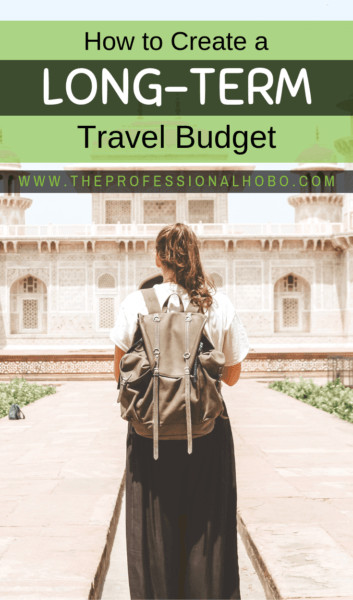
This post was originally published in 2019. It has since been updated for accuracy of links and content.
My Own Journey to Financially Sustainable Travel
When I was writing Working on the Road: The Unconventional Guide to Full-Time Freedom (since discontinued), my editors pushed me heavily to provide long-term travel budget spreadsheets and other tools that would categorically spell out how much it costs to live and travel full-time.
I refused to do it.
Why? Because travel – especially when it’s a lifestyle, not just a short vacation – is so incredibly different for everybody. There is no budget.
Just look at my own cost of full-time travel over the years and how it has changed:
- 2010: $17,000
- 2011: $18,000
- 2012: $28,000
- 2013: $44,000
- 2014: $28,000
- 2015: $25,000
- 2016: $23,000
- 2017: $21,000
- 2018: $28,000
- 2019: $35,000
My annual expenses changed drastically for a variety of reasons, not the least of which was life just being life. In 2013 for example, I had almost $20,000 in erroneous expenses as a result of “stuff” happening like a house/passport theft, near-fatal accident, and financially supporting a partner.
(See also: Brace Yourself: Travel Isn’t all Roses and Lollipops)
This “stuff” of life happens whether or not we travel; but – fairly or unfairly – it becomes a part of the “travel budget” when traveling long term or full-time.
Life’s misadventures aside, if I didn’t have the income to support my expenses in general, I wouldn’t have spent (other money) the way I did.
For example in 2013 even with those dastardly experiences, I also made other costly choices – such as paying for accommodation (instead of getting it for free which I’ve done so much), and a big splash-out in Europe.
So when readers balk (as they occasionally do) at my travel expenses, suggesting that this isn’t “financially sustainable travel” as they see it, I simply point them towards my income for those same years:
- 2011: $22,000
- 2012: $39,000
- 2013: $43,000
- 2014: $31,000
- 2015: $34,000
- 2016: $28,000
- 2017: $22,000
- 2018: $30,000
- 2019: $51,000
Except for a slight differential in 2013, I’ve consistently spent less than I’ve earned.
So have I been traveling in a financially sustainable way? You betcha.
Has it been synonymous with budget travel? Not particularly.
Nor was I trying to make it so.
Perhaps the confusion stems from the early years of my travels; I was earning less, so I had to make do with less. In those years, out of necessity, I acquired various budget travel techniques like getting free accommodation. But a tight budget is not a necessary cornerstone of financially sustainable travel).
So as much as you might like me to tell you exactly how much you’ll spend to travel full-time or long-term, as you’ll see from the criteria below, it’s just not possible.
At the same time, I can’t help but smile at this quandary. Isn’t it wonderful that you can spend as much or as little as you want? That you can choose a destination – and lifestyle – that suits your budget and your desire for exploration?
You get to call the shots, kiddo. It’s simply up to you to pull the trigger.
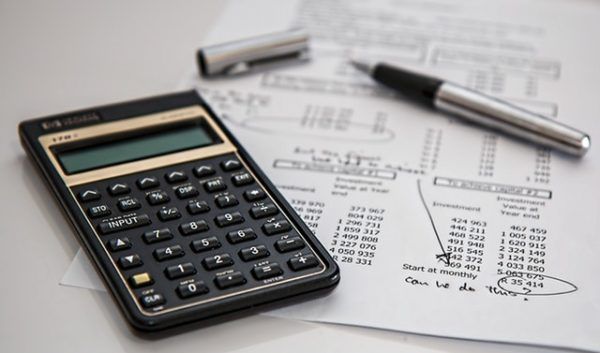
The 2 Core Components of Financially Sustainable Travel
Financially sustainable travel, at its core, has two main components. Here they are, along with the relevant questions to ask so you can start to create your own travel budget and style.
Money In (Income)
What money do you have to work with?
Are you traveling for a fixed term on fixed savings? Or are you making travel a full-time and indefinite lifestyle?
If it’s indefinite, you’ll need a stream of income to support you. What kind of income is it? Is it passive (eg: rental income, investment income, or passive business income), or active (eg: a freelance career or entrepreneurial venture)?
It’s fine if the answers to these questions vary over time; it’s simply important to understand what sort of money you’ve got to work with every step of the way.
See also: How to Make Money While Traveling
Money Out (Expenses)
Your travel expenses depend entirely on your personal travel style, which in turn, depends on a variety of factors, such as where you choose to travel to, how fast you go, what you plan to do, who you’re traveling with, and what kind of lifestyle you want to maintain.
Creating Your Long Term Travel Budget and Lifestyle
Let’s dig a little deeper with some nitty gritty questions. These will help you to define your lifestyle, create a traveling budget, and figure out how much money to start traveling with. Whether it’s a one year travel budget or a 10 year travel budget, the process below is the same.
See also: How to Drastically Reduce Fixed Expenses so You Can Save Money to Travel – up to an extra $4,000/year!
How to Budget for Travel (Crucial Questions for Travel Budgeting)
How to budget for travel? Start with the big picture. Before you can start to dream up a budget for your trip, it’s important to decide what you want to get out of your travels, and attach some general price tags to those goals and ideas. Don’t worry: this is a fun process….it’s how your travels start to take shape; give it the time it deserves while you dream a little, and ponder the questions below.
Why am I traveling? Are you anticipating all-inclusive cruises and vacations in Europe and the Caribbean, or rustic rural home-stays? Are you on a mission to conquer mountains, or do you want to hit the backpacker trail? What is your theme or purpose for travel? Answering this question is the biggest determinant of how much money you need to travel, and how your travels will take shape.
Will I maintain a home base and travel from there? This will cost more than living nomadically. It’s not right or wrong…it just is. I’ve had a few home bases along the way. The location of your home base (and associated cost of living) will be a determining factor.
Do I have ongoing expenses at home? E.g., loan payments, property expenses, family support. It’s all a part of the travel budget!
Where to? Pay attention to the cost of living/traveling through those countries. Obviously developing countries will be cheaper than places like North America and Western Europe. But don’t make assumptions; for example, while South America is cheap on the whole, Chile and Argentina can be very expensive. This cost of living calculator from Expatistan will help you generally compare living costs abroad; to dive deeper do a search for “cost of living + [city/country you’re researching]”. If you already have a budget in mind and want to see where it will take you, check out this calculator from The Earth Awaits, which allows you to search based on not only budget and lifestyle, but also your tolerance for crime rate and pollution. Lastly, Budget Your Trip aggregates average daily costs from real travelers.
How much ground do I want to cover? If you’re on a fixed-length trip (eg: one year) and a mission to set foot in 50 countries, you’d better budget for it. The faster you travel, the more money you spend. (And quite frankly, the more exhausting your trip will be).
What am I going to do with my time? Volunteering can reduce your expenses; skydiving won’t.
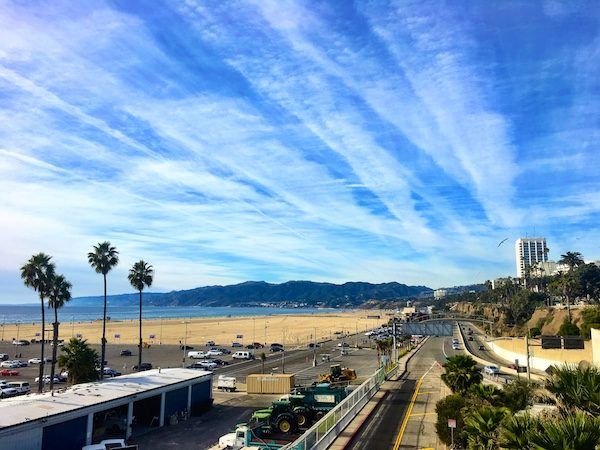
Income Questions
Beyond the simple “do I have an income or not” question, lies the following more specific questions. Some of these questions will help you determine how much money you’ll need in the bank to start traveling with, even if you plan to earn money along the way.
Do I have a business to provide an income along the way? If so, what do you need – financially and logistically – to operate this business? This is key to calculating your expenses; if you are working every day, you’ll inherently spend less money on doing “stuff” to keep you occupied.
Am I eligible for a Working Holiday Visa? If you don’t have a location independent business going yet, and you’re under 30, a Working Holiday Visa gives you the chance to stay in a country for a year with working rights to apply for any job you can land. Most Working Holiday Visa users get jobs in seasonal (ie: picking fruit) or hospitality (ie: serving tables) industries. But if you’re highly qualified and want to transfer your skills to another country, this visa will help you get your foot in the door.
How long will it take me to find a job? This depends on your skills and how in-demand they are where you’re going, and whether or not you have a working visa.
How much can I earn? If you are looking for local jobs, how much will they pay? If you are running a business, what are your earnings projections and possibilities?
Contingency Planning (How to Budget Travel Expenses You Can’t Anticipate)
To be perfectly honest, it was pretty much a fluke that my 2013 income was as high as it was; a very welcome fluke given the emergency expenses I also bore that year. Don’t count on such flukes; think instead of these questions:
How much is my medical/emergency/health insurance coverage? Because you are going to get travel insurance….right? (Here’s everything you want to know about Travel Insurance).
How much do I need in my travel emergency fund? My rule of thumb is to have at least enough money to return home from anywhere in the world at the drop of a hat, plus a little bit more.
What happens if my income fluctuates or drops? Contingencies for this also form part of your emergency fund (or alternately, you can set up a separate account that you use as a “slush fund”, transferring money in during flush months, and dipping into it during lean months). Determine how many months’ expenses you need to have on hand in order to sleep well at night.
How to Invest Your Travel Savings and Emergency Fund
At the very least, I suggest keeping your travel savings account separate from your emergency fund (which, in keeping with its name, should only be accessed in emergencies).
To take this further, I also invested the proceeds from selling everything I owned separately, and I maintain separate accounts for income tax payments, retirement savings, long-term non-retirement savings, and more.
For more information on how to properly invest your travel (and other) savings, read The Ultimate Guide to Financial Planning for Travelers.
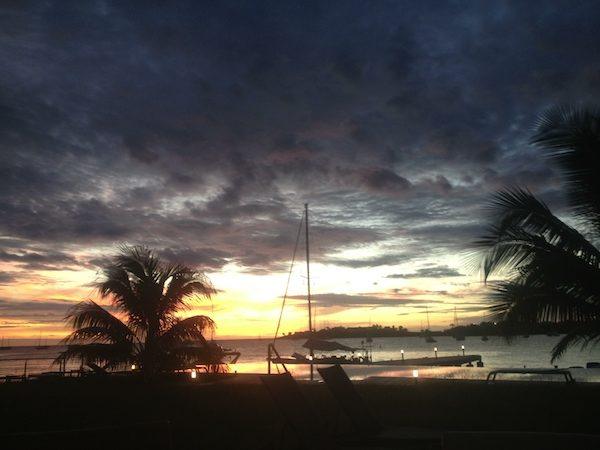
The Real Cost of an Arbitrary Travel Budget Planner (True Story)
I started to travel long term with a partner who wasn’t in a stellar financial situation. We arbitrarily decided he should have $10,000 saved (in addition to my own savings) before we departed.
We left before he reached this savings goal (and to make matters worse, he had some lingering debts). But we figured it would be okay, assuming he could easily find work along the way. From what little we could discern from our research, this seemed to be the norm for many people on a long term trip.
Although he was periodically able to do so, finding jobs was tougher than anticipated, and the income was highly variable – and I’m talking about places where he could legally work; under-the-table jobs were even more difficult (if not impossible) to find in many of the places we visited.
Our saving grace was that our cost of living was low since we volunteered in trade for free accommodation, and we also set a fairly slow pace for travel, which is an inherent money-saver.
But even so, it wasn’t long before his money vanished (we were both still learning the art of financially sustainable travel) and we became reliant on whatever money we could make (in addition to my own income and savings, which were plusher).
This created stress – between us and within ourselves – that adversely affected our travels, and ultimately, our relationship.
(See also: My Sordid Attempts at Love on the Road)
We didn’t know how to travel long term. Despite my financial planning background, we had trouble predicting what our new lifestyle would cost, and thus how to create a travel budget. (Remember, back in 2006, long-term/lifestyle travel wasn’t as popular, so there weren’t many resources out there like travel calculators to help us figure things like the cost of living out).
So we threw our hands up and just took a leap of faith, figuring we’d learn how to swim once we were in the water.
And we did learn to swim. But the water ran deep, and it made for some trying times.
It pays to take the time to define your ideal lifestyle and put a general price tag to it. Things will probably change along the way, but as long as you have the income – or savings – to keep up with Plan A, then Plan B can be tweaked accordingly.
Real-Life Management of Travel Budgets and Income
Okay, you’ve answered the questions above, and you have a vague (or perhaps even specific) sense of what you might spend on your anticipated travels, as well as what you might earn.
Now, prepare for it all to get totally messed up.
In 2013, “life happened” while I was busy making plans, and my expenses that year were 54% higher than any other year of my travels, before or since.
Budgets are great, and they do work! But flexibility is even more important. Be willing to roll with the punches, and change tack when necessary.
The beautiful thing about a travel lifestyle is that it’s all about you. And you….along with what’s important to you and how you want to live your life….will likely change and evolve as you travel. Just make sure your financial plan is flexible enough to change along with you.
How to Spend Less Than You Earn (Traveling on a Budget)
Here’s my big secret; it’s my secret to budgeting (at home or abroad), and to staying on track with expenses and thus to a financially sustainable travel lifestyle. Traveling on a budget doesn’t always mean scrimping, but it does mean the following:
I track every dollar/yen/euro/peso/whatever that I spend. Every. Single. One.
I do this day in, day out, rain or shine. No matter how small the expense, it gets logged. No judgements or regrets…I just log it.
This is made ridiculously easy by the Trail Wallet app, which is probably my all-time favourite and most useful travel app. Ever. (See also: 25 Must-Have Travel Apps)
I can track money in multiple currencies, and it automatically converts it to US dollars. This way I can see what I’m spending each month, as I go. I can also track how much I’ve spent per country or trip. And I can export my data into a spreadsheet so I can play with the numbers even more (which is what I use to formulate my annual expense reports.
If you’re traveling on a fixed income or savings, monitoring your expenses like this is invaluable to determining along the way if you’re on track, or whether you need to make some changes, or conversely, if you have some surplus to splurge or invest.
And if your income is variable, all the more reason to have a travel expenses budget and stick to it.
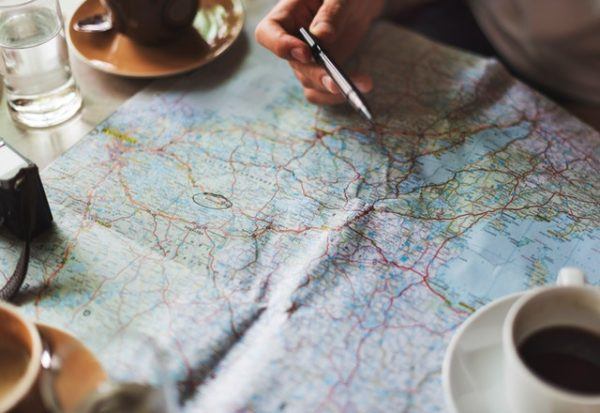
Moral of the Story
Financial stuff isn’t comfortable. For most people, it’s not fun to talk about or focus on. People would rather discuss their sex lives, therapy, or medication at the dinner table than their finances. When I was a financial planner, it was a joke with many of my clients that I knew them better than their own families did; because once you open up about money, everything else follows.
But money is your vehicle to whatever lifestyle you want to live. Isn’t it better to harness your finances (and your career) to help you live the life of your dreams, rather than the other way around?
I spent a few years apprenticing with a shaman, and along the way I saw a lot of people come through with a huge variety of issues to overcome/integrate. But the common denominator between the majority of these people was their field of vision in relation to their lives, and what they believed was possible.
If you can drop that filter, along with expectations (expectations of yourself as well as expectations you think others may have of you) and instead approach your life as the ultimate designer thereof, you will have much more flexibility.
In 2006 when I sold everything to travel the world, people just didn’t do that sort of thing. When I decided I’d earn a living with my laptop while abroad, the terms “digital nomad” and “location independent” didn’t even exist. Today, it’s all en vogue.
I started out travelling full-time with a fixed income (from the sale of my business) of $18,000/year – which wasn’t even close to being enough to support me as I had been living in Toronto. I had no reason to expect it would support me abroad.
But it did – in spades. In those initial years, I lived (and lived very well) in places where the cost of living was actually pretty high. Hawaii. Australia. New Zealand. Western Europe. I made a go of it there, in ways I couldn’t have imagined possible when I started out traveling.
Techniques like how to get free accommodation and the creative use of frequent flyer miles (to fly in business class for less than the price of a coach ticket) kept my expenses not only in check, but below my small income. (Unfortunately, I don’t have expense reports for those years, as I didn’t start tracking and publishing that information until 2010).
As my income increased, so too did my travel expenses. I no longer had to have free accommodation; I could afford a home base (which I enjoyed in various countries, including Australia, Grenada, Peru, and now, Toronto). I could travel faster if I wanted to.
Today, I still don’t make a huge income. I certainly can’t afford the sort of lifestyle that some of my travel colleagues (many of whom I’ve interviewed in my Financial Case Study series) can. But I enjoy a quality of life that is commensurate with my income, and enjoy it I do.
THIS. This, is financially sustainable travel.
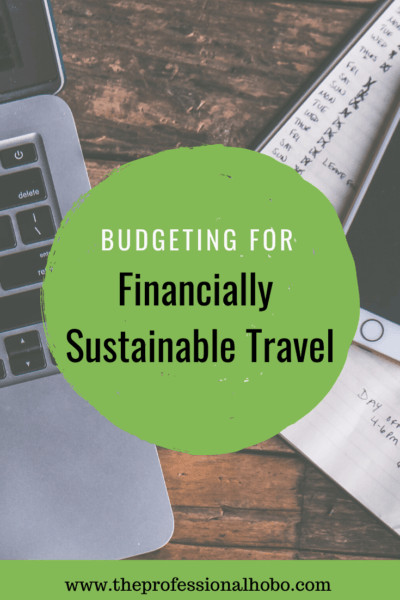

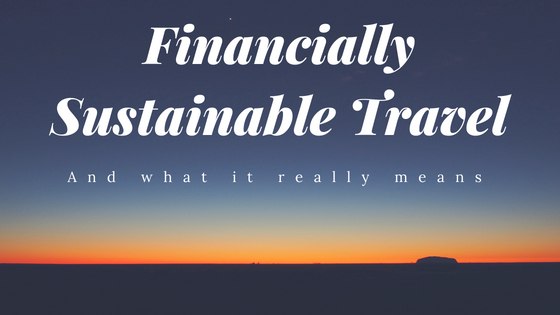

Thanks for sharing such personal information in such an informative and fulsome way. This is very helpful to those of us looking to see if traveling full time is a sustainable way to live.
Hi Lesley,
I’m glad it’s helpful! Ultimately the question of sustainability boils down to you and your preferences. Good luck!
Wow! This is some write up! A lot to digest & see what fits into ‘my’ life.
Two notes I made while I was reading through the first time. Just thoughts that immediately caught my attention.
1) Emergency fund? “Enough to return home”. You need a home to return to!
2) >>I track every dollar/yen/euro/peso/whatever that I spend. Every. Single. One<<
Such a simple trick & one that could pay huge dividends!
And such a hard habit to get into!!
I get paid tomorrow, that (to my mind) might be a good time to start tracking what I spend..
Thank you for passing all this along Nora!
Hey Rob,
Well, I’m using the term “home” liberally….as in, if I need to return to my home country, for example to tend to a family emergency.
And yes….tracking expenses is awesome. Take a bit to make it a habit, but now I’d be lost without my glorious spreadsheets. 😉
Excellent write up for anyone who is already location independent or planning to do the digital nomad lifestyle. Nora, I think one of the main keys to your success is that you actually do track your expenses. As a bookkeeper I’ve worked with many people who struggle with tracking their spending. They are afraid to know how much they spend.
I’ve been traveling nomadic for over 3 years now. My first year I went over budget with $44K in expenses, but still spent less than my income so no worries. Now my income is lower so I am careful to keep my spending in check. I aim for $2,500 per month in expenses while road tripping around Canada and USA and it’s pretty easy to do this by adjusting my accommodation and meals/entertainment. For instance I will stay in shared Airbnb’s to cut down on my lodging costs.
The key to financial sustainable travel is tracking the numbers.
I couldn’t agree with you more, Susan! The first step to creating any budget is to know what your starting point is, and that means tracking your expenses and understanding where your money is going. Only with that baseline established, can we figure out where to tweak our budgets as necessary.
I think the budget is the hardest part of any trip. Being always looking at how much you spend can be so good, but at the same time is important to enjoy. Thanks for all your tips!
Hi Alejandra,
A great reminder to remember to enjoy everything we spend, even if we are tracking these expenses! I always suggest to track spending without judgement. Not always easy….
Thank you so much for such a thorough and informative post. I’m starting to save from this months paycheck for the next year in order to travel full-time and will definitely bookmark this post to refer back to. Have started book-keeping already in the hope it keeps me accountable and saving as much as possible, hopefully by next year it’ll be a good habit that’s easy to keep up on the road! Thanks again for such a useful post.
You’re welcome, Rebekah! There’s a ton of resources on this site to help you transition to – and through – your full-time travel adventures, so keep checking back! If you haven’t already discovered them, I believe you’ll find everything in here to be very useful: https://www.theprofessionalhobo.com/category/travel-lifestyle-guides/
Sound advice here Nora. My share; please spend dough here and there, guys. I see people with tens and hundreds of thousands squirrel-ing it away, living like vagrants LOL. If you enjoy, go for it. If not, please enjoy more comforts and freedoms of travel.
Amen to that, Ryan! Spending money is great for local economies too.
I have a colleague who says he never sweats any expense under $10. While I certainly consider every dollar I spend (and whether the result of spending it brings me joy – Marie Kondo style!), I tend to agree that squeezing every penny until it screams isn’t a great way to travel. What’s the point in even being on the road if you have to live like a bum?
Hi Nora,
As someone who’s going on my own digital nomad journey starting this summer I just wanted to thank you for all the resources and very detailed posts you provide in your website..
I’ve been reading a lot of them in the past months and yours is by far the one with the most detailed posts and useful tips for anyone who’s going to take this big leap. Particularly love the tip for Canadians to use Fongo and Esim while abroad, set up virtual mailing sites, miles programs, slow travel posts, and etc. Thanks for sharing the knowledge.
I’ve a question regarding slow travel.. Any tips on how we could keep some sort of flexibility regarding the amount of time spent at a place since is usually recommended booking accommodation as soon as possible to guarantee best rates and abundance of options? (for example, with a goal of spending 1 month in each capital of Latin America – by the time I’d get to a place I’d have to already start booking accommodation for the following month in the new city.. then hindering the flexibility of staying a bit more or cutting short my time there).. not sure if there’s much a way around that, just something I’ve been wondering.
Thanks,
Hi Felipe,
First of all thanks for your kind words!
Secondly, you have a great question, to which of course there’s no easy answer. I would be inclined to try to stay longer than a month in each place, to build in a bit more flexibility. And of course, please check out my article/resource full of different ways/sites to book monthly accommodation! I use it all the time myself – I hope it’s helpful for you: https://www.theprofessionalhobo.com/how-to-book-monthly-digital-nomad-accommodation-alternatives-to-airbnb/
Perfect, great article too 🙂